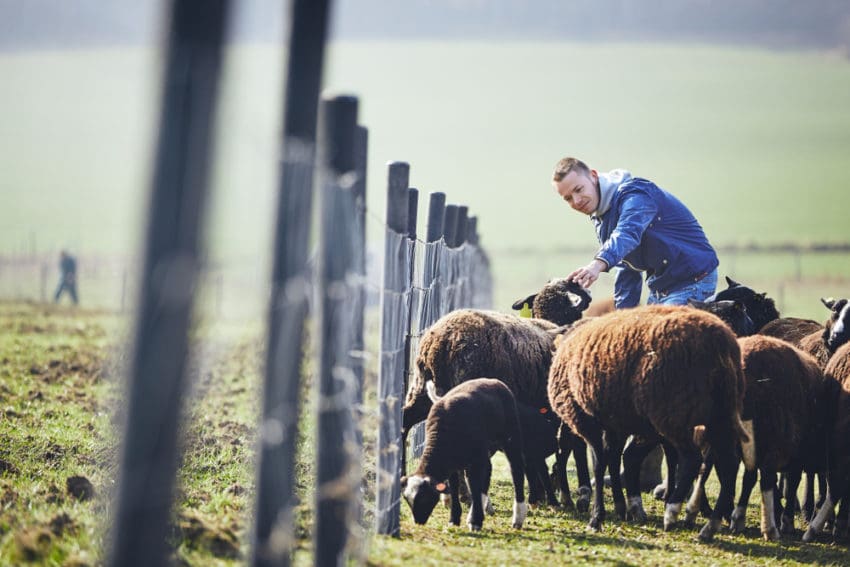A no-deal Brexit could cost the farming industry £850m a year in lost profits, new research suggests.
Farm business consultants Andersons said that without government support increasing significantly, some farms would inevitably struggle to survive.
The author of its research described a no-deal Brexit as a greater challenge than the BSE and foot-and-mouth crises.
The government says it will “provide direct support to boost some sectors in the unlikely event this is required”.
‘Decimate’ industries
Under a no-deal Brexit, farms could have to pay a tariff on goods exported to the EU for the first time.
Lamb and live sheep exports could face tariffs of 45-50%, while trade and farming groups say some cuts of beef could see tariffs of more than 90%.
If European firms suddenly start having to pay more for UK meat, the fear is they could quickly switch to suppliers in other countries.
Other so-called “non-tariff barriers”, like extra veterinary and customs checks at the border, could also increase costs to farmers.
“It could wipe out the sheep industry in Northern Ireland,” farmers Jo and Lindsay Best, from County Antrim, told the BBC’s Victoria Derbyshire programme.
“A large percentage of our sheep are exported into France and the Republic of Ireland, and the price of feed could go up as well. It could decimate both the sheep and cattle industry here.”
Andersons modelled the impact on typical farms in different parts of the UK.
Farms already receive more than £3.5bn a year in EU subsidies under the Common Agricultural Policy (CAP).
The government has told farmers those support levels will be maintained until the next general election and that is included in Andersons’ calculations.
In the first year after a no-deal Brexit, profitability across the whole industry would fall by 18% – or between £800m and £850m – compared with the 2016-2018 average, its research suggests.


